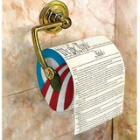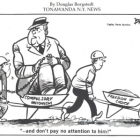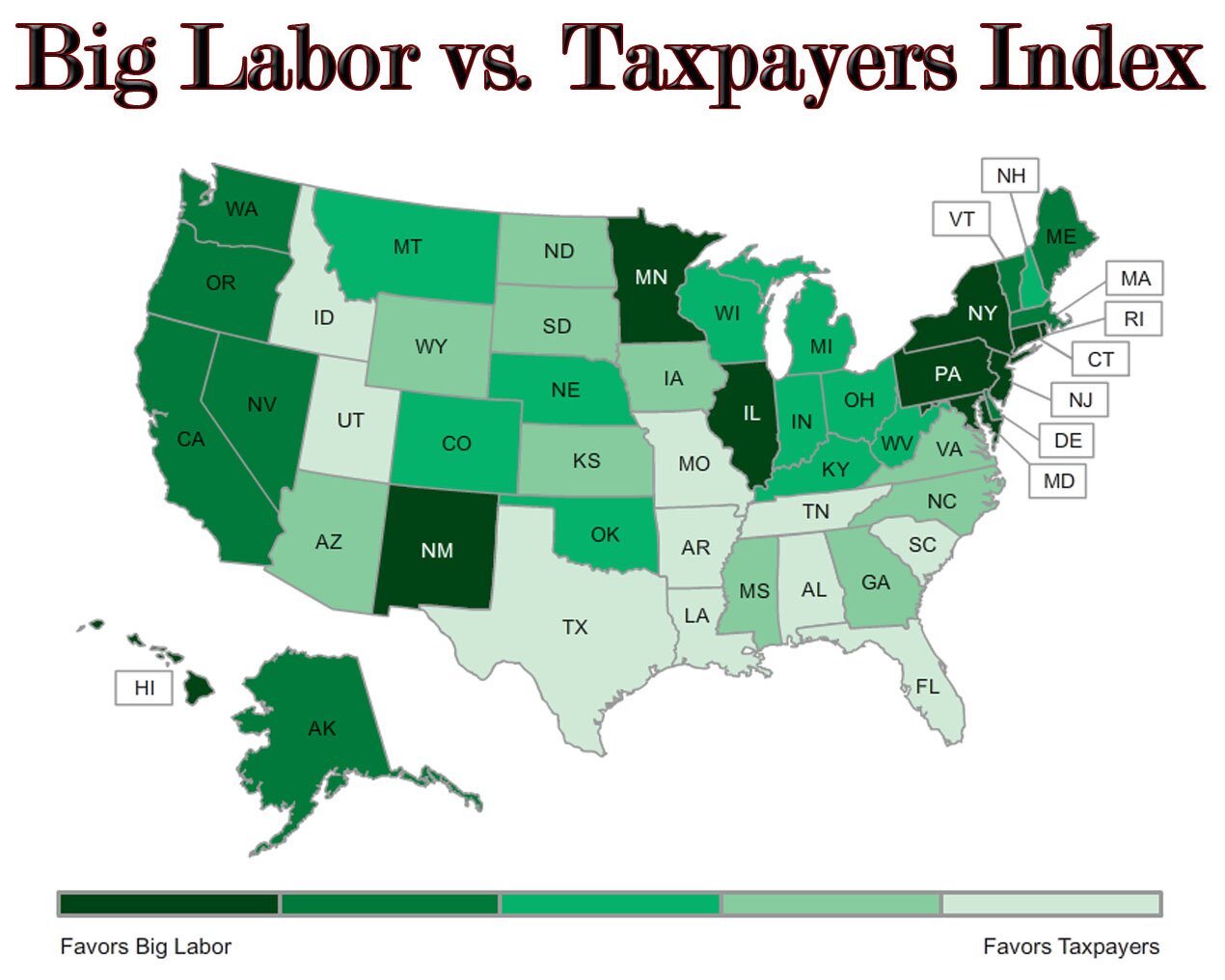By Amanda Palleschi, Government Executive
The Office of Personnel Management’s Labor and Management Relations Council has unanimously approved an outline of a report due to President Obama in May on personnel issues for which collective bargaining is currently optional.
The council in 2010 commissioned a working group composed of representatives from both labor and management who are coordinating with government agencies that have tested (b)(1) bargaining issues — issues not required to be up for negotiation with unions in the public sector.
So-called (b)(1) bargaining gets its name from a section of the U.S. Code that covers topics management currently may choose to bargain or not. These issues include numbers, types and grades of employees, and methods, means and technology used for doing an organization’s work, according to National Federation of Federal Employees President Bill Dougan.
http://www.govexec.com/management
Associated Press, The Wall Street Journal
A new poll finds that New York state voters trust Gov. Andrew Cuomo to safeguard education more than they trust the teachers’ union.
The Quinnipiac (KWIHN’-uh-pee-ak) University poll released Thursday finds that 50 percent of voters trust Cuomo more “to protect the interests of New York State public school students.” Thirty-eight percent trust the teachers’ union more.
Just 45 percent of those polled said they approve of the way Cuomo is handling education, while 42 percent disapprove.
But they support Cuomo’s school reform proposals by large margins.
http://online.wsj.com/article/
Openmarket.org
One of the left’s favorite mantras is that government regulations and special interest groups provide the only ways that workers can get ahead. This notion was on display at a congressional briefing held on February 13 by the labor advocacy group Restaurant Opportunities Centers United (ROC).
At ROC’s briefing, “Gender Equality in the Restaurant Industry,” speakers equated the tipped minimum wage — the base a restaurant must pay its workers before the employee receives cash tips — with gender discrimination, as 66 percent of tipped workers are women.
What is ROC’s angle? First, to further its political agenda by helping Rep. Donna Edwards, the keynote speaker at the briefing, push her bill. The tortuously named Working for Adequate Gains for Employment in Services (WAGES) Act (H.R. 631) would raise the national minimum wage for tipped workers from $2.13 an hour to $5.50 an hour within two years. The second is to help ROC push discrimination claims against restaurants it is trying to target.
By Rosalind Rossi, Chicago Sun-Times
The Chicago Teachers Union issued a searing critique Thursday of Chicago school spending and policies, calling for $713 million in improvements — including full-day kindergarten and lowering class sizes from a maximum of 28 students to 20 for younger kids.
It also suggested $796 million in sources of new revenue, including the use of $159 million in unallocated tax-increment-financing funds and new “taxes on the wealthy,” including a capital gains tax and a 6-cent “financial transaction tax.”
“For too long, our students have been shortchanged, their teachers have been undermined, and their schools have been financially starved of the resources they need,” said Karen Lewis, president of the teachers union.
http://www.suntimes.com/news/metro
Openmarket.org
Yesterday, the next step toward Connecticut Gov. Dannel Malloy completing his scheme to force unionize personal care attendants took place. CTNewsJunkie.com reported:
The four-member Personal Care Attendant Working Group adopted a series of “options” Wednesday that will allow the state to move forward with plans to allow personal care attendants to collectively bargain for their salary and benefits. Personal Care Attendants take care of low-income disabled individuals through a Medicaid waiver system operated by the state.
The final report does not recommend a specific union or specific process for unionization. The daycare providers covered by Malloy’s executive order No. 9 have already voted to form a union. The personal care attendants have not.
That’s right, the government created another level of bureaucracy, the Personal Care Attendant Working Group, to issue “options” for collective bargaining to workers who are not unionized.
By John Fritze, The Baltimore Sun
Federal employees will be required to contribute $15 billion toward the cost of extending federal unemployment insurance under a tentative agreement struck in Congress that would also maintain the 2010 payroll tax break, federal worker union officials said Wednesday.
The deal, which lawmakers have cautioned is still tentative, would require employees to contribute an additional eight tenths of one percent to their retirement funds. The money generated from that provision would cover roughly half of the $30 billion cost of extending long-term unemployment benefits.
“Here we have workers being asked to pay for something that they didn’t cause,” said John Gage, president of the American Federation of Government Workers. “This is simply wrong headed and we are calling on the leaders in Congress to change this course and find another way.”
http://articles.baltimoresun.com/2012-02-15
By Jeff Higley, HotelNewsNow.com
Those awaiting a game-changing event that could stall any recovery taking place in the U.S. hotel industry need look no further than 30 April 2012, said Arnold E. Perl, an attorney who specializes in labor issues for Glankler Brown PLLC.
Speaking during the 14th annual Memphis Lodging Industry Update, Perl said significant changes in the election rules and processes for organized labor will be implemented the last day of April. Those changes, adopted by the National Labor Relations Board, will have a lasting effect on the hotel industry, he said.
“The NLRB is a black-swan event for this industry,” Perl told the 150 attendees of the meeting. “The changes implemented by NLRB will jeopardize teamwork … that will dramatically change your properties.”
http://www.hotelnewsnow.com/
By Andrea Ahles, Star-Telegram
Unions representing flight attendants and mechanics are proposing buyouts as an alternative to American Airlines’ laying off 13,000 workers.
The offers came Wednesday as the Fort Worth-based airline began 10 days of meetings with union leaders to try to reach agreement on restructuring plans unveiled two weeks ago that include massive layoffs, the termination of pensions and the closing of the Alliance maintenance facility.
The Association of Professional Flight Attendants said its “early-out” package would reduce head count and allow flight attendants to retire early with full pension and medical coverage before becoming eligible for Medicare.
By Nick Carey, The Fiscal Times
Political money has poured into Wisconsin in recent months, not for the presidential or Senate races but for a state vote getting national billing as a battle for the interests of the middle class. On one side are conservatives from across the country who back Republican Governor Scott Walker, a darling of the right since his 2011 crusade to rein in government spending by eliminating most collective bargaining rights for public employees. On the other are Democrats and union backers conducting a grassroots drive to collect more than a million signatures in a heated campaign to recall Walker.
Republicans say checks on union power are essential to curb government spending and protect the middle class, on whom higher taxes fall disproportionately. Democrats portray the Wisconsin law – which also requires public workers to pay more for their pensions and healthcare – as a move to undermine workers’ protections that they say helped build the middle class, in favor of the wealthy.
http://www.thefiscaltimes.com
By Micheline Maynard, Forbes
Three years ago this month, the Obama administration assembled the team that oversaw the auto bailout. In the following half year, the task force led General Motors and Chrysler in and out of bankruptcy, and did much of the heavy lifting that had been needed for decades to reform Detroit.
Now, all the obvious steps are over, like cost cutting, reorganization, eliminating dealers and brands, and embracing the need to develop fuel efficient vehicles. The easy profits that come from low hanging fruit have been plucked.
For Detroit, 2012 is when the hard part starts, and the companies’ job of standing on their own feet may be even more difficult than the administration anticipated.
http://www.forbes.com/sites/michelinemaynard
 Free Market Policy Organizations Push Back against Stealth Unionization Campaign
Free Market Policy Organizations Push Back against Stealth Unionization Campaign
 Could Indiana’s Right to Work Law Mean Trouble For Neighboring States?
Could Indiana’s Right to Work Law Mean Trouble For Neighboring States?
 Wrong way, Illinois: Unemployment rate increased most in the nation in 2011
Wrong way, Illinois: Unemployment rate increased most in the nation in 2011
 Wisconsin union holding federal funds hostage
Wisconsin union holding federal funds hostage


